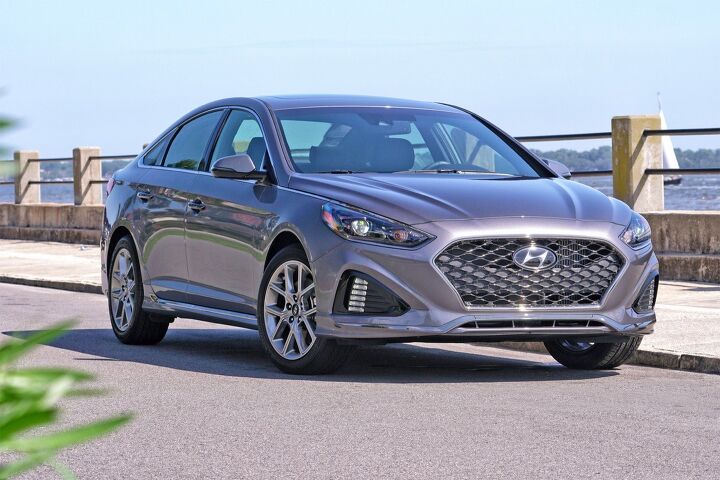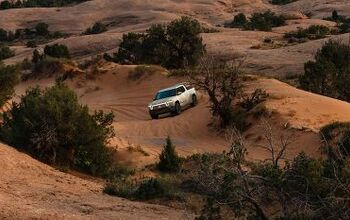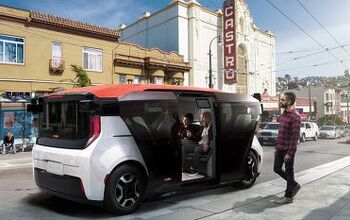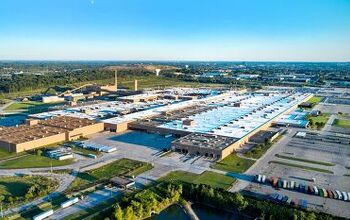Hope for Hyundai? China Agrees to Ignore South Korea's Missiles

When it comes to the positively frosty relationship between China and South Korea, this is the part of the movie where the two countries bump into each other at the bookstore and realize they should work out their troubles instead of giving each other the silent treatment. You know, for the kids.
For South Korea, China’s decision to warm up the relationship — which soured after the jittery country placed U.S.-supplied defensive missiles on its soil — is the best news its auto manufacturing sector has heard in ages. Perhaps soon it won’t be frowned upon to own a Hyundai or Kia in Beijing.
As Reuters reported yesterday, both countries have agreed to patch things up and move past last year’s decision to install THAAD anti-missile batteries in South Korea. The mobile missile launchers are designed as an extra level of protection against possible aggression from the nuclear-armed North Korea.
China, however, found the missiles to be particularly provocative. Not because China remains a tepid ally of North Korea’s authoritarian regime, but because it felt THAAD’s powerful radars could peek into its airspace. In response, South Korea’s tourism industry, as well as its manufacturing and entertainment industries, took a heavy hit in China.
Owning or buying a Korean car quickly became something to avoid. With a market as large as China’s, that spelled extra turmoil during a troubled time at Hyundai Motor Company. The company’s U.S. sales have tapered off, leaving the automaker scrambling to build new crossovers in an attempt to rekindle the fire.
According to The Korea Herald, Chinese Hyundai sales have fallen 37.2 percent over the first nine months of 2017. Kia sales fell 40.0 percent. That’s a big chunk taken out of the automaker’s global volume.
“We see a chance to recover sales on a gradual basis if the official ‘normalization of ties’ leads to easing of anti-South Korean sentiment,” a Hyundai official told the publication. “In the case of the automobile market, the Chinese government actually did not block consumption of South Korean cars, unlike in the tourism industry.”
For Ssangyong Motor Company, the move could mean its shelved joint Chinese plant plans might get a rethink. You’ll recall Ssangyong began looking at entering the American market after groundwork for a China plant went nowhere. (After last week’s board of directors vote, there’s no still word on whether we’ll see a new brand sold on this side of the Pacific.)
“We will have to wait and see how our partner will react to the thawing relations between Seoul and Beijing,” a Ssangyong official told The Korea Herald.
[Image: Hyundai]

More by Steph Willems
Latest Car Reviews
Read moreLatest Product Reviews
Read moreRecent Comments
- Lichtronamo Watch as the non-us based automakers shift more production to Mexico in the future.
- 28-Cars-Later " Electrek recently dug around in Tesla’s online parts catalog and found that the windshield costs a whopping $1,900 to replace.To be fair, that’s around what a Mercedes S-Class or Rivian windshield costs, but the Tesla’s glass is unique because of its shape. It’s also worth noting that most insurance plans have glass replacement options that can make the repair a low- or zero-cost issue. "Now I understand why my insurance is so high despite no claims for years and about 7,500 annual miles between three cars.
- AMcA My theory is that that when the Big 3 gave away the store to the UAW in the last contract, there was a side deal in which the UAW promised to go after the non-organized transplant plants. Even the UAW understands that if the wage differential gets too high it's gonna kill the golden goose.
- MKizzy Why else does range matter? Because in the EV advocate's dream scenario of a post-ICE future, the average multi-car household will find itself with more EVs in their garages and driveways than places to plug them in or the capacity to charge then all at once without significant electrical upgrades. Unless each vehicle has enough range to allow for multiple days without plugging in, fighting over charging access in multi-EV households will be right up there with finances for causes of domestic strife.
- 28-Cars-Later WSJ blurb in Think or Swim:Workers at Volkswagen's Tennessee factory voted to join the United Auto Workers, marking a historic win for the 89- year-old union that is seeking to expand where it has struggled before, with foreign-owned factories in the South.The vote is a breakthrough for the UAW, whose membership has shrunk by about three-quarters since the 1970s, to less than 400,000 workers last year.UAW leaders have hitched their growth ambitions to organizing nonunion auto factories, many of which are in southern states where the Detroit-based labor group has failed several times and antiunion sentiment abounds."People are ready for change," said Kelcey Smith, 48, who has worked in the VW plant's paint shop for about a year, after leaving his job at an Amazon.com warehouse in town. "We look forward to making history and bringing change throughout the entire South." ...Start the clock on a Chattanooga shutdown.


































Comments
Join the conversation
I understand your concern, but Hyundai does have a good portion of their supply chain and mfg in the US. Elantras are made in AL as well as KR. Not sure about the GT though. https://www.hyundaiusa.com/new-thinking/built-in-usa.aspx
Let’s suppose Kim decided to act on his fantasy of conquering South Korea, and the USAF lost all the keys to the bombers and didn’t vaporize Pyongyang. The Norks would triumphantly enter the Hyundai offices and find.. nothing. The bank accounts would contain nothing, the contents having been wired out of the country days before. Same with all the intellectual property, having been FTPd to Hyundai’s new world headquarters somewhere in the USA where they had just chartered themselves as a US corporation. They’d be just down the road from the LG and Samsung world HQs. Realtors would be working feverishly to find homes for all the Korean employees that just arrived as refugees. Various US states would be in a bidding war to entice H/K to locate new assembly plants while the Norks try to figure out how to reverse engineer and build cars in the stripped facilities that they could only sell to China.